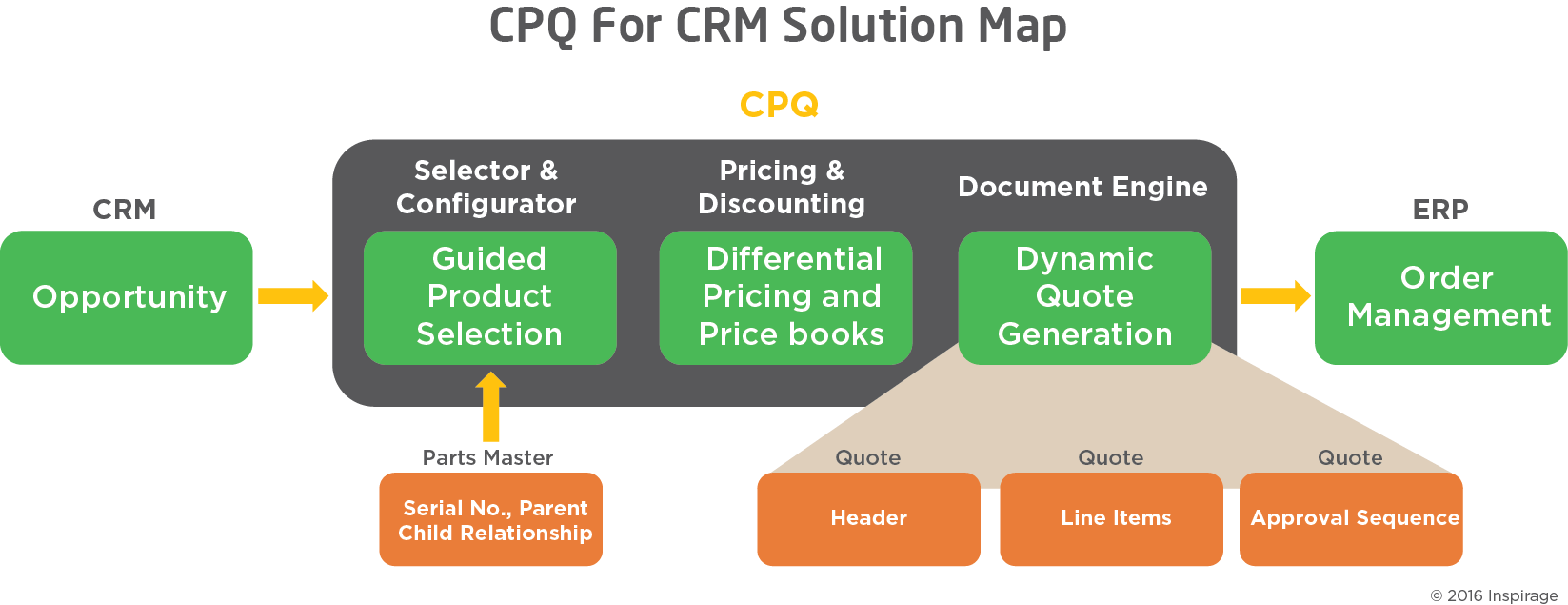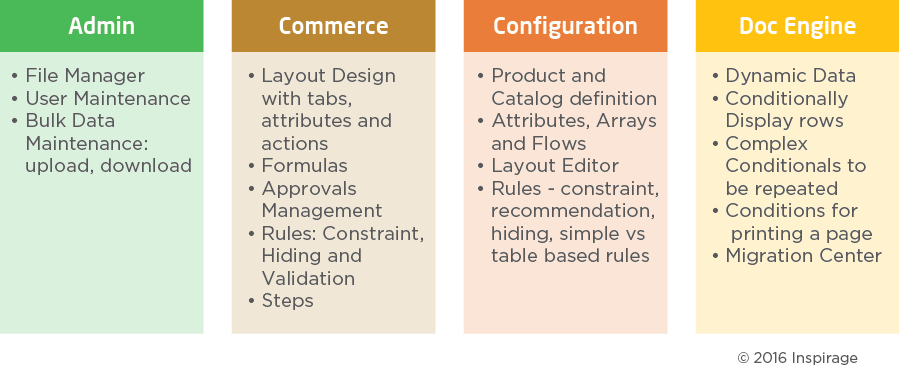Oracle CPQ Cloud, formerly known as Big Machines CPQ, provides a cloud based Configure, Price and Quote system that offers extreme ease of use and configurability. Oracle CPQ Cloud helps organizations automate and streamline the opportunity to order conversion cycle and acts as a bridge between front end CRM processes and the back end Order Management and Fulfillment systems. The system enables sales representatives to focus on selling, thus helping organizations to improve sales force productivity and the bottom line.

BigMachines CPQ has been a leader in the market since its inception in 2000 and prior to the acquisition and integration by Oracle in 2013. The product was originally envisioned as an online tool for configuring, pricing, and quoting of “Big Machines” in the oil and gas industry, hence the name. This business software product quickly became established as the easiest to use and deploy system for configuring, pricing, and quoting of ETO and CTO products and services. Oracle has rebranded and evolved the system to simply what it does, Configure, Price, and Quote (CPQ).
There are two primary products which can be considered based on your organization size, revenue, and complexity of business requirements. The product Oracle CPQ Enterprise is intended to meet the needs of larger enterprises and Oracle CPQ Express (which is built on the salesforce.com platform) is intended for organization having less than 500 employees or less than $250 million revenue. These are general guidelines, but you will see additional functionality in the enterprise version. The subscription based model provided by Oracle CPQ Cloud provides organizations many benefits, such as: pay as you use, low initial investment, easy scalability and much more. The user friendly point and click configuration makes it very convenient to tailor the solution according to your business needs and helps with ease of maintenance. The key features of Oracle CPQ Cloud are shown in the graphic to the right.
Clients whom should consider Oracle CPQ include:
- B2B markets where the complexity of the product makes it difficult for the customer to choose the right combination of product elements without such a tool
- B2B markets where the volume of quote generation is high
- Clients with Assemble-to-Order (ATO), Make-to-order (MTO) and engineer-to-order (ETO) products and services.
- Organizations engaged in inorganic growth activities (Merger, Acquisition and Take Over) and who require tools to rapidly bring all product offerings onto same quoting platform
- Organization that sell products through varied channels
- Organizations that wish to transition from an error-prone or inadequate legacy quotation system and want to automate and streamline these business processes
The 4 key component applications of Oracle CPQ Cloud are Administration, Commerce, Configuration and the Document Engine. These CPQ applications are shown in the Table 1 below. These applications help organizations model their sales business processes for rapid and accurate quote creation. Each of the modules also offers advanced capabilities like BML/ UTIL libraries, and BMQL and XSL to create business specific extensions to cater to more complex requirements that clients may have.

Table 1: Oracle CPQ Cloud – Key Component Applications
Oracle CPQ Cloud supports integration with many CRM systems. With the latest release of Oracle SCM Cloud (Release 10) you can push sales orders directly to Order Management Cloud for orchestration, promising and fulfillment.
Oracle CPQ Cloud is a leading product in the marketplace and many organizations have benefited through reduction in quote conversion cycle time, increased customer satisfaction due to improved quote accuracy, improved sales efficiency and ease of deploying new products. The net result is that this is a key software product to consider as it directly benefits your sales team and can help you increase your sales.